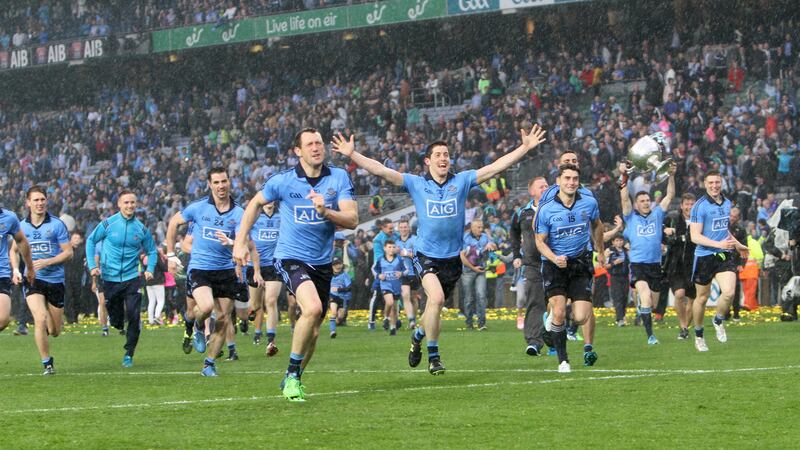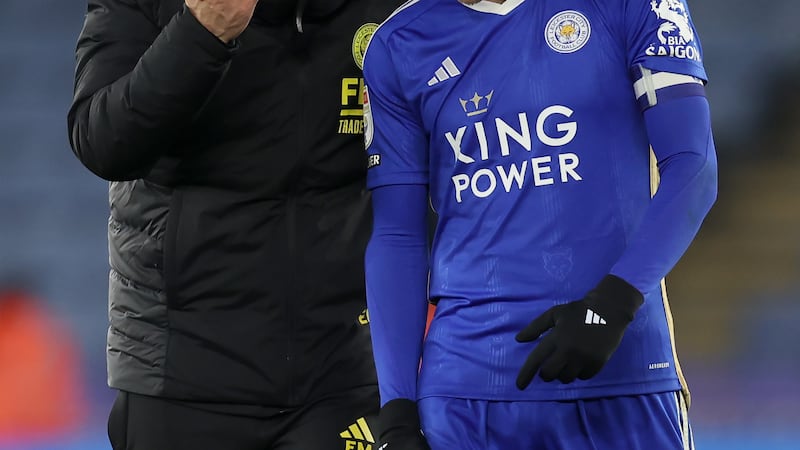THE Dublin footballers and the All Blacks have a lot in common. They currently possess every title they competed for in 2015. They are also an extremely marketable product; in fact, they even share the same multi-national sponsor in AIG.
A more in-depth look at the recent history of both groups gives us a better insight into what makes them brand leaders in their respective sports at the present time.
History, tradition and flair are words that would commonly be used when describing both teams in their sporting codes.
They have produced some of the greatest players ever to grace the international rugby or inter-county stage.
However, until recently, another term that could have described them both is under-achievers.
New Zealand won the very first Rugby World Cup on their home soil way back in 1987. They then failed to get their hands on the Webb Ellis Trophy until the tournament returned to their country in 2011.
During this time the All Blacks continued to be the leading lights of world rugby, cleaning up on Tri Nations and Rugby Championships trophies year after year.
They would also arrive in the northern Hemisphere for an annual end of season clean sweep of the home nations.
They would thank each country for the game and wonderful hospitality before returning home safe in the knowledge that they were still the team to beat.
However, no matter how good their pre-tournament form was, they couldn’t carry that all-conquering momentum into World Cups.
The list of reasons for their failure every four years was endless. They couldn’t cope with the level of expectation, bad luck, injuries, even food poisoning in South Africa in 1995 was to blame.
For a team so attuned to winning, with the highest win rate in world rugby, none of these excuses washed with the New Zealand public.
By 2004, the All Blacks had hit a dead end. Results were declining, key players were threatening to leave, their set-up was dysfunctional.
In his autobiography, Dan Carter describes how, after a dismal drubbing at home to South Africa in 2004, the dressing room was filled with anger instead of the usual disappointment or anguish.
They socialised as a team afterwards but instead of having a few beers and heading off to bed, the anger felt amongst the group was raw and only worsened. Harsh accusations began to fly and the night spiralled out of control.
Management were appalled at the actions of the group. This led to the now infamous management meeting where the assistant manager at the time, Wayne Smith, slipped then head coach Graham Henry a note insisting “we fix this thing”.
Similarly, Dublin went 16 years from 1995 until 2011 without getting their hands on Sam Maguire.
They did manage to win six Leinster titles during this period but for a county with the biggest population in Ireland, an endless pool of players and vast resources, not to make it to the third Sunday in September was unthinkable.
Because of their recent success nationally, it’s often thrown at the Dubs that their financial backing is the reason for their winning streak.
Some people forget that Dublin boomed more than anywhere during the Celtic Tiger. Money was no object then either – but they still couldn’t beat Armagh, Tyrone, Mayo or Kerry when it mattered most.
A recent newspaper interview with Dublin’s long-time stats man, Ray Boyne, may explain why the ultimate prize eluded them during that time.
He said: “We went through a period where there was a massive sense of entitlement.
“Players felt ‘I’m on the Dublin team, I can say what I want in an interview, I’m entitled to free boots and I’m entitled to get in wherever I want with my Dublin sweatshirt on’.”
Just like Graham Henry in New Zealand, Pat Gilroy was new to the Dublin hot seat; he soon realised he needed to lead his players on a journey of entitlement to humility.
They embarked on endless amounts of charity work. Ray Boyne explained that Gilroy, his management team and his players even took part in a
24-hour fast where they slept outside Arnott’s in sleeping bags.
From midnight runs to 6am pitch sessions, he was hell bent on changing the culture within the Dublin group. And he did. It’s safe to say that both Henry and Gilroy left telling legacies.
They knew change was needed, they had a vision for their future, they eliminated anyone seen as a hindrance and they developed the capabilities of those around them – players and management – in order to execute their plan.
Last November, the All Blacks became the first nation ever to successfully retain the World Cup. Last September the Dubs landed their third All-Ireland in five years.
Of course, both squads are laced with star names, they also generate huge interest and following wherever they go, but the standard they have set themselves is impeccable.
Both camps developed and have maintained an environment of personal and professional development where each individual has a personal responsibility and loyalty to the team.
To a man they have bought into the tactical, technical and physical plan laid out for them by their management teams and they are reaping the rewards.
In GAA terms, there is hope for the chasing pack though. As we’ve seen from their last two title defences, Dublin have been unsuccessful.
They start this year as undoubted favourites but the loss of Rory O’Carroll, who has headed off on his travels for a year, and Alan Brogan to retirement will weaken their hand as the pressure mounts this summer.
Back-to-back All-Irelands are a rarity these days, but if anyone is capable of achieving this feat, it’s Dublin. Championship is a long way off but I’ll boldly predict there’ll be new champions in 2016.
I just don’t know who it will be yet.







